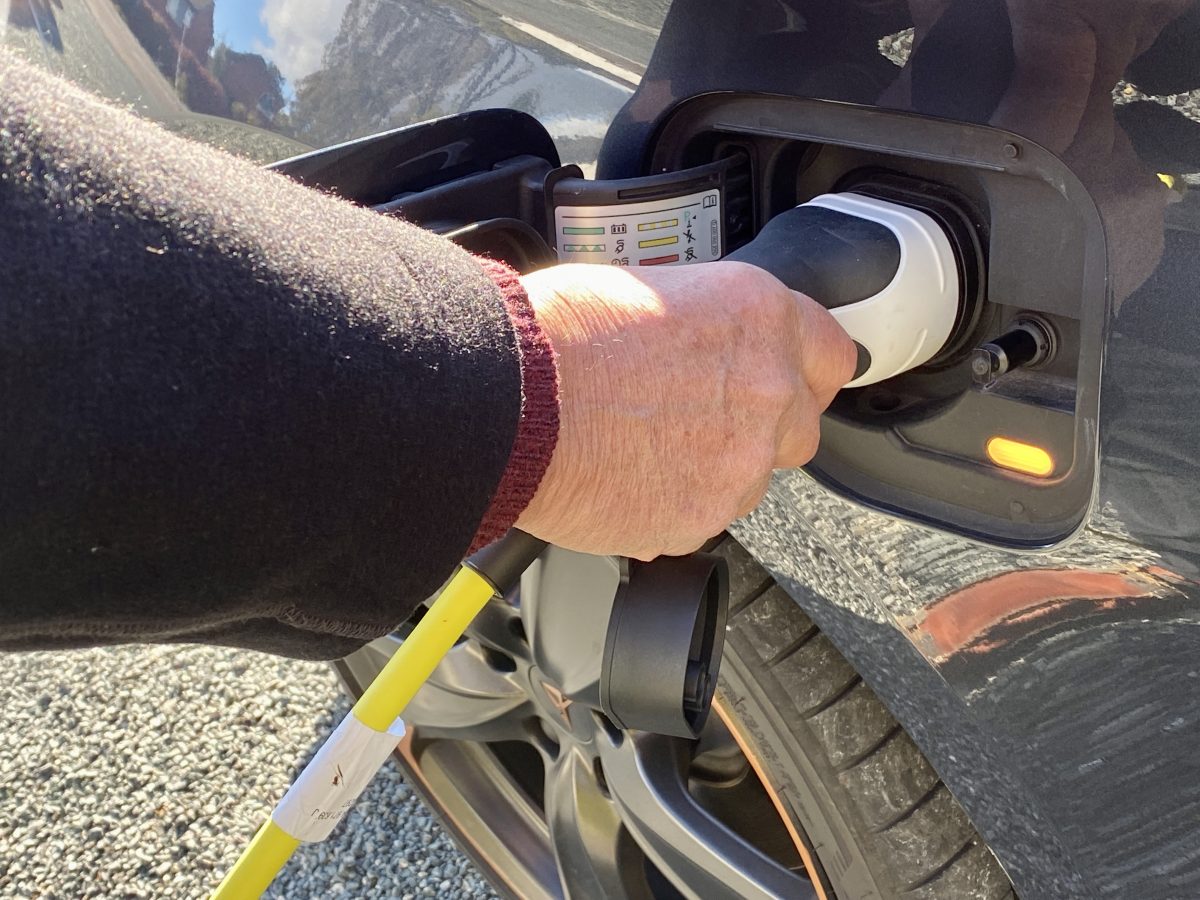
Changes are under consideration to make it easier to install EV charging infrastructure in unit-titled buildings. Photo: James Coleman.
The ACT Government has detailed the first phase of the actions it needs to take until 2030 to reach net-zero emissions by 2045, which may include a future ban on the sale of gas appliances.
It could be part of regulatory reform under consideration as the government also looks to electrify all “feasible” community and public housing by the end of the decade (alongside continued energy efficiency improvements).
“That is an important commitment that we can make to our own tenants and that represents another significant component of the housing stock and energy demand inside the ACT,” Chief Minister Andrew Barr said.
Around 880 public and 132 community housing properties have already received upgrades, such as ceiling insulation and gas-to-electric appliance upgrades, but there’s a way to go.
Around 3500 public housing properties still need insulation upgrades, but there’s no complete tally on the number left to be electrified.
There’s also $5.2 million allocated for a pilot to identify a pathway to electrification for private households that need support.
Regulatory reform is also on the agenda, with a focus on making it easier to electrify existing units, townhouses and mixed-use buildings.
It’s been estimated about 26,000 households in complex buildings need to electrify, with the added challenge of owners corporations and strata managers, and the buildings’ structural constraints.
Water, Energy and Emissions Reduction Minister Shane Rattenbury said a new Retrofit Readiness program will be rolled out to help stakeholders.
“We’re laying out the first steps here with a program to help those buildings develop an electrification readiness plan – essentially free advice to help them along the way,” he said.
This would deliver a tailored technical engineering report for buildings, giving recommendations on how to reach electrification based on each case’s inputs and needs.
Strata law reform, particularly to the Unit Titles (Management) Act 2011, will also be examined to make sure the legislation is fit for purpose.
“In our consultations, it’s become very clear that to enable these buildings to make these changes, it may be that we need to change strata legislation to enable clearer decision making,” Mr Rattenbury said.
Addressing barriers to electric vehicle adoption and installation of charging infrastructure in unit-titled properties would be part of this.
In the meantime, interest-free loans will be provided to unit owners to purchase and install an EV charger.

Vantage Strata managing director Chris Miller welcomed the government’s planned Retrofit Readiness program to help owners corporations make informed electrification decisions. Photo: Michelle Kroll.
The advice program, in particular, has been welcomed as a way to equip strata managers and body corps with the knowledge they need to make future electrification plans.
Vantage Strata managing director Chris Miller explained that while law reform would be important, the challenge of electrifying apartment buildings was more of a practical matter.
“This is a positive initiative, in my view, that the government is not just looking to make approval processes easier for owners to help them raise the money [for these changes], but they’re also dealing with the problem further upstream – and that’s helping people understand what will be required for their buildings, engineering-wise,” he said.
“Strata managers and owners corporations will need that technical expert advice about what engineering changes will be required before they can even vote on what to choose and what money will be needed.”
Other regulatory options and interventions will also be considered.
Mr Barr wouldn’t specify what these are but stated there would be a focus on encouraging people not to install gas appliances in new homes and businesses.
“At the moment the focus is on supporting people to make the transition to electric when the time is right for them,” he said.
Banning the sale of gas appliances in the ACT is one regulatory reform that could be considered before the end of 2030.
While this is a future concern, Mr Miller said the industry would want to know more about the government’s intentions in this space, stating it could pose challenges for apartment buildings.
“For example, if a complex has gas-reticulated hot water banks servicing the whole building, it’s fairly commonplace that parts need to be replaced as they fail,” he said.
“If the owners corporation can’t access replacements [in the ACT] as each bank fails one at a time, that will be a problem … because they’ll need to then be in a position to replace the entire system rather than one component.”




















